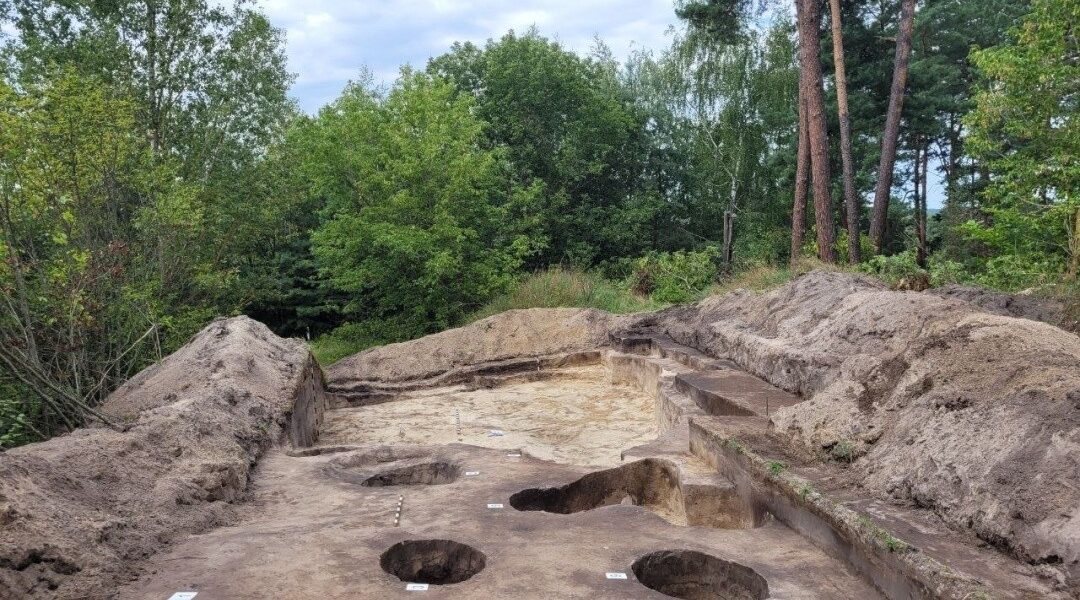Ancient Greek and Scythian artefacts were discovered in the Kotelva community of Poltava region, Ukraine.
The specialists of the Historical and Cultural Reserve "Bilsk" discovered 40 archaeological objects of Scythian period during the works at the site.
"During large-scale rescue archaeological works at Kotelva II settlement, an area of more than 360 sqm was explored and 40 archaeological objects (grain and garbage pits, various economic buildings) were discovered,” Ihor Korost, director of the reserve, told an Ukrinform correspondent.
"No dwellings were found. Probably, they were destroyed during the development of a quarry that operated in this area in the past years," he added.

Spinning wheels and fragments of local Scythian ceramics were among the discovered objects. The archaeologists also found an impressive number of arrowheads.

"The majority of the archaeological material dates back to the Scythian period, with the chronological limits of the end of the 6th - the first half of the 5th century BC," said the head of the Historical and Cultural Reserve "Bilsk".
"It is interesting that fragments of ancient ceramics were found in the excavation (production centers – Klazomenai, Chios, Thasos, Abderus). There were also several fragments of Greek tableware (from Attica and Olbia)."

He added that it was thanks to the conducted research that it was possible to draw attention to the preservation of this settlement. Sand mining operations at the quarry were stopped, and the site was put on the List of Newly Discovered Cultural Heritage Sites.

During the excavations at another site (the settlement of Staryi Karyer) on Kotelva land, archaeologists, among other things, discovered and explored a dwelling of the Late Bronze Age.
"Just imagine, it is more than 3,300 years old! Its dimensions are approximately 8 × 8 m. A significant amount of ceramics and a spinning wheel decorated with various ornaments turned are valuable," Korost emphasised.
"Further research of the site will make it possible to determine its exact age, establish the stages of development, and features of settlement."
Most historians associate the Scythian settlement near the village of Bilsk with the settlement of Gelonus, described by the ancient Greek historian Herodotus. Archaeological research of the site was launched by Vasyl Horodtsov in 1906.
READ MORE: Temple of Artemis in Ephesus digitally brought back to life.

